The Importance of Clean Drinking Water
The significance of clean drinking water cannot be overstated. As a fundamental requirement for human life, its quality directly influences our health, well-being, and the overall sustainability of our planet. Let’s delve deeper into the subject and examine water filters’ role in this crucial matter.
Health Benefits of Clean Water
Clean water is the lifeblood of our bodies. It aids in:
- Hydration: Water replenishes body fluids and helps maintain healthy bodily functions, including digestion, nutrient absorption, and temperature regulation.
- Nutrient Delivery: It carries essential nutrients and oxygen to different body parts.
- Detoxification: Water aids the body in eliminating waste and harmful toxins, promoting better overall health.
Unfortunately, contaminated water can nullify these benefits and introduce various health problems, ranging from gastrointestinal illnesses to serious conditions like arsenicosis and fluorosis.
Global Water Quality Issues
Despite the critical importance of clean drinking water, global access remains a grave concern. The World Health Organization says nearly 2 billion people drink contaminated water that could harm their health.
Water quality issues arise from various sources:
- Industrial waste
- Agricultural runoff
- Inadequate sanitation
- Chemical contamination
These challenges necessitate effective and sustainable solutions, one of which is using water filters.
Role of Water Filters
Water filters act as the first line of defense against water contamination. They remove undesirable particles, chemicals, and microorganisms, enhancing water’s taste and smell while making it safe to drink.
Some key benefits of water filters include:
- Protection Against Harmful Contaminants: Filters effectively reduce or remove a wide range of contaminants, including lead, chlorine, pesticides, and bacteria.
- Improved Taste and Odor: By eliminating contaminants and impurities, water filters improve your water’s overall taste and odor.
- Environmental Sustainability: Water filters can reduce bottled water dependency, thereby minimizing plastic waste and promoting sustainability.
While water filters play an essential role in providing clean drinking water, it’s important to note that not all water filters are created equal. The next sections will focus on sustainable water filters that ensure clean drinking water and contribute to a healthier planet.
Conventional Water Filters and the Environment
As we delve deeper into water filtration, it’s vital to understand the various types of conventional water filters available and their environmental implications. Not all filters are created equal, and while they all serve the purpose of purifying water, they each have a unique impact on the environment, particularly in manufacturing and disposal.
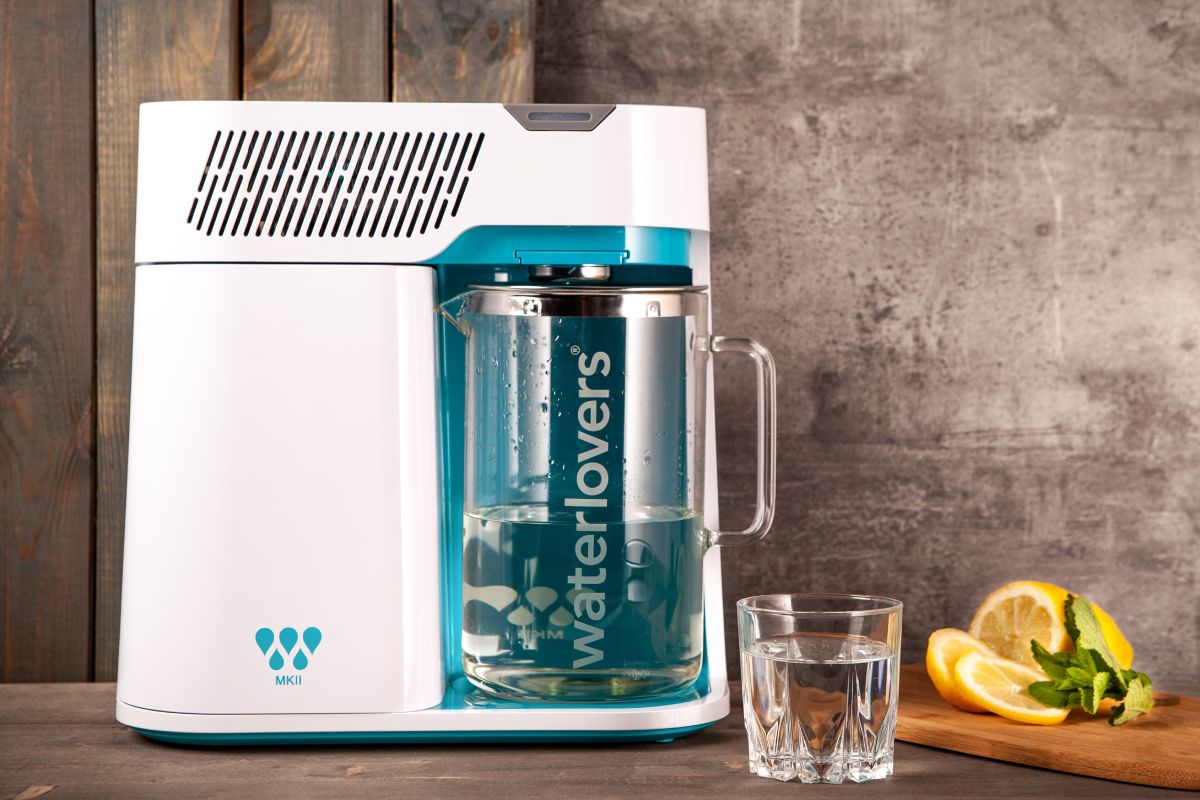
Common Types of Water Filters
Various water filtration methods are widely used today:
- Activated Carbon Filters: These filters work by adsorption, a chemical reaction where certain particles are attracted to activated carbon and bond with it. They effectively remove organic compounds and chlorine and improve taste and odor.
- Reverse Osmosis Filters: This system uses a semi-permeable membrane to remove ions, unwanted molecules, and larger particles from drinking water.
- UV Filters: UV filters utilize ultraviolet light to kill bacteria and other microbes, making it a chemical-free water disinfection method.
- Ceramic Filters: Often used in portable water filters, ceramic filters have small pores that catch dirt, debris, and bacteria.
Environmental Impact of Filter Manufacturing
While these filters help ensure clean drinking water, their manufacturing process often involves the use of non-renewable resources and energy-intensive processes:
- Material Extraction: The creation of filters often involves extracting and processing raw materials like aluminum, silica, and petroleum, which can lead to significant energy use and environmental degradation.
- Production Process: The transformation of these raw materials into the components of a water filter can be energy-intensive, resulting in substantial greenhouse gas emissions.
- Transportation: Shipping these filters worldwide contributes to additional carbon emissions.
Disposal Issues with Conventional Filters
The disposal of conventional water filters presents its own set of environmental challenges:
- Non-Biodegradable Waste: Many water filters contain plastic components that do not biodegrade, contributing to the growing problem of plastic waste.
- Landfill Space: Filters that are not recycled end up in landfills, taking up space and potentially leaching harmful substances into the soil.
- Inadequate Recycling Facilities: Although some components of water filters can be recycled, facilities that accept these items may not be widely available or accessible.
As we strive for a healthier planet, the importance of choosing sustainable options becomes clear. The following sections will discuss sustainable water filters that offer an eco-friendly alternative to conventional ones, reducing the environmental impact while providing clean, safe drinking water.
What Makes a Water Filter Sustainable
In an era where sustainability is not just an option but a necessity, how we choose and use products, including water filters, has far-reaching environmental implications. But what exactly makes a water filter sustainable? This section explores the characteristics defining a sustainable water filter, including the materials used, energy efficiency, and waste reduction and recyclability potential.
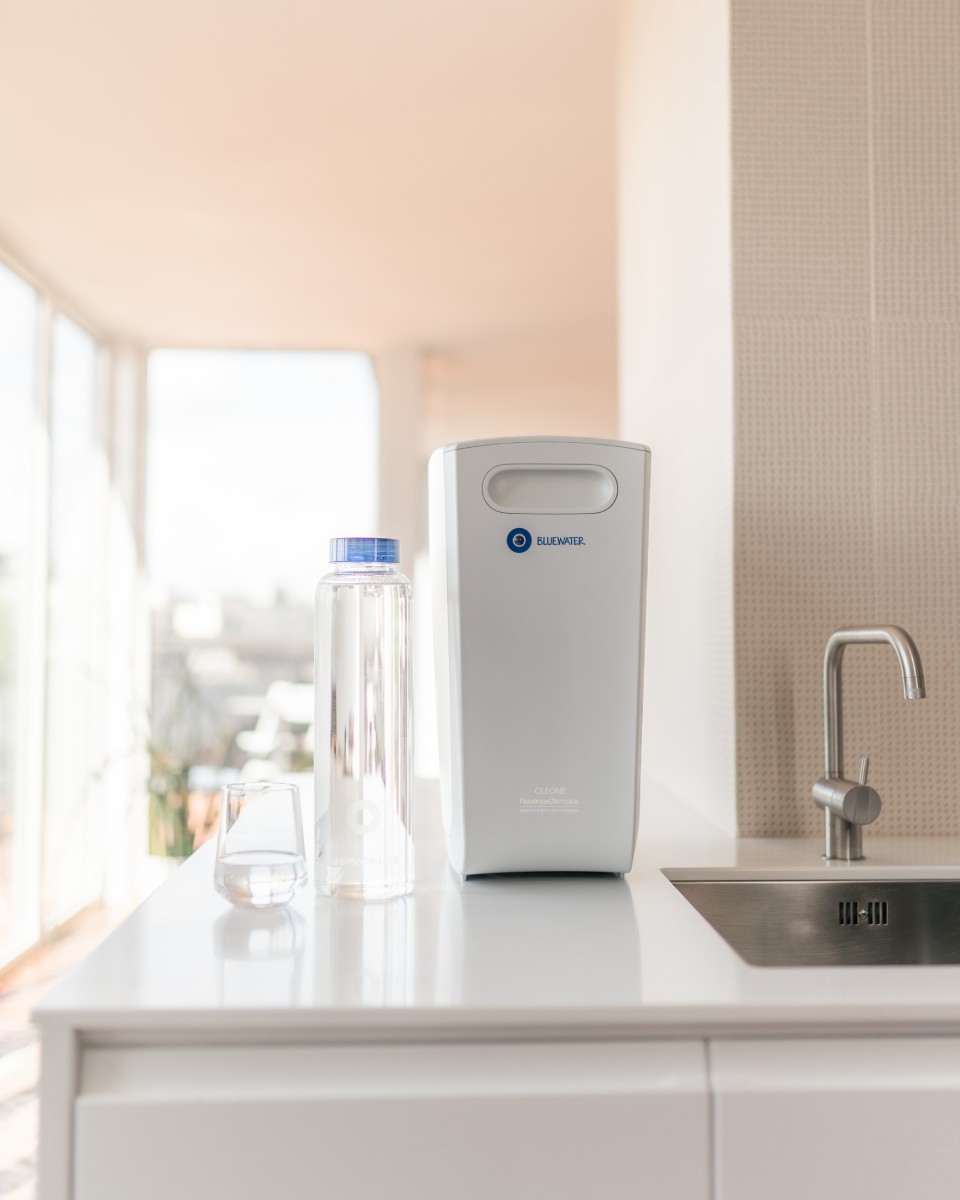
Use of Eco-friendly Materials
Sustainable water filters are often constructed with materials that have a reduced environmental impact compared to their conventional counterparts:
- Biodegradable Materials: These filters use components made from plant-based or other organic materials that break down naturally over time, resulting in less environmental waste.
- Recycled and Recyclable Materials: Some filters use parts made from recycled materials, reducing the need for new material extraction. Additionally, filters designed to be recyclable contribute to a circular economy where materials are reused rather than discarded.
- Durable Materials: Long-lasting materials reduce the need for frequent replacements, decreasing the resources needed over the filter’s life.
Energy Efficiency in Filter Operation
Another factor in the sustainability of a water filter is its energy use during operation:
- Low-Energy Filtration Processes: Certain types of water filters, like gravity-fed or hand-pumped systems, require little to no energy to operate, making them an energy-efficient choice.
- Efficient Design: Some filters are designed to maximize their efficiency, reducing the energy needed for pumping or heating water.
Waste Reduction and Recyclability
The end of a water filter’s life cycle is as important as its creation when evaluating its sustainability:
- Replaceable Filter Cartridges: Some systems allow for replacing the filter cartridge while keeping the main housing, which reduces overall waste.
- Recycling Programs: Some manufacturers offer recycling programs for their filters, ensuring that used filters are properly dismantled and recycled rather than ending up in landfills.
- Minimal Packaging: Sustainable filter companies often minimize packaging or use recycled and recyclable packaging materials, reducing waste further.
In a world where every small step toward sustainability counts, choosing a water filter with these characteristics can be a powerful way to contribute to a healthier planet. Let’s move ahead and look at some sustainable water filter options that are available in the market.
Types of Sustainable Water Filters
The shift towards a sustainable lifestyle has catalyzed innovation in many industries, including water filtration. A wide range of sustainable water filters have hit the market, offering eco-friendly alternatives that are efficient and effective. This section will delve into some of these sustainable options, specifically focusing on activated carbon, ceramic, and plant-based filters.

Activated Carbon Filters
Activated carbon filters, also known as charcoal filters, are one of the most common types of water filters due to their versatility and efficiency:
- Eco-friendly Manufacturing: Activated carbon is typically made from bituminous coal, coconut shells, wood, and other organic materials, making it a relatively sustainable choice.
- Efficiency: These filters are especially effective in removing organic compounds and chlorine, improving the taste and odor of water.
- Low Energy Requirement: The filtration process is typically gravity-fed, requiring no electricity, further increasing its environmental friendliness.
Ceramic Filters
Ceramic filters are another sustainable option to consider:
- Sustainability: Ceramic filters are made of natural clay, making them an environmentally-friendly choice. The ceramic material can also be cleaned and reused, extending its lifespan.
- Effectiveness: These filters can remove bacteria, protozoa, and sediments from water, making it safer for drinking.
- Low-Cost and Energy-Efficient: Ceramic filters are relatively inexpensive to produce, require no energy, and can last longer if maintained properly.
Plant-Based Filters
The world of water filtration has also seen exciting innovations in plant-based filters:
- Sustainable Materials: These filters use various plant parts, like xylem tissue, seeds, or coconut shells, providing a renewable and biodegradable filtration solution.
- Efficacy: Studies have shown that certain plant-based filters can effectively remove bacteria, protozoa, and even some viruses from water.
- Innovation: While plant-based filters are a newer entry to the market, ongoing research promises to deliver even more effective and sustainable solutions.
These are just a few of the sustainable water filters currently available. When choosing the best option for your needs, consider factors such as water source and quality, filter lifespan, cost, and the contaminants you want to remove. In the next section, we will further discuss how to choose the best sustainable water filter for your home.
The Role of Sustainable Filters in Water Conservation
Sustainable water filters purify your drinking water and play a significant role in conserving water. Their impact extends beyond the individual household, contributing to broader efforts to reduce bottled water consumption, minimize water waste, and encourage responsible water use. This section explores these aspects of sustainable filters in more detail.

Reducing Bottled Water Consumption
Sustainable filters have a direct impact on the demand for bottled water, one of the most significant sources of plastic pollution:
- Reduced Demand: Reliable home water filtration reduces reliance on bottled water, reducing plastic waste and the energy consumed in plastic production.
- Savings: While the initial investment in a filter may be higher than buying a bottle of water, long-term savings are significant for your wallet and the environment.
Minimizing Water Waste
The application of sustainable water filters also aids in minimizing water waste:
- Efficient Filtration: Compared to some traditional water purification methods, modern sustainable filters waste less water during filtration.
- Awareness: Choosing a sustainable filter can increase awareness of water usage and inspire other water-saving behaviors.
Encouraging Responsible Water Use
Sustainable filters can also play a role in fostering a culture of responsible water use:
- Promoting Sustainability: By choosing a sustainable filter, you’re making a statement about your commitment to water conservation and environmental responsibility. This can influence others in your circle to do the same.
- Community Impact: Some sustainable filter companies also invest in water conservation projects, meaning your purchase can have a wider community and environmental impact.
Sustainable water filters, therefore, do more than purify your water. They contribute to important global goals of reducing waste, promoting responsible consumption, and conserving our precious water resources. As more and more people adopt these sustainable technologies, their collective impact can lead to significant environmental benefits. In the next sections, we will explore how to choose and maintain a sustainable water filter for your home.
Selecting a Sustainable Water Filter
Choosing the right sustainable water filter involves more than just picking the first eco-friendly model you find. It requires a clear understanding of your specific needs, an evaluation of the product’s lifespan and maintenance requirements, and an investigation into the certifications and sustainability practices of the manufacturing company. This section guides you through these considerations to help you make an informed decision.

Understanding Your Specific Needs
The first step in selecting a sustainable water filter is to understand your unique needs:
- Water Quality: Test your water to identify any specific contaminants you must filter out. This can help you choose a filter that targets these particular contaminants effectively.
- Household Size: Your household size and water consumption will determine the capacity and flow rate required in a water filter.
- Budget: Sustainable filters come at various price points. Consider your budget and remember to account for future maintenance costs.
Evaluating Product Lifespan and Maintenance
Next, assess the lifespan and maintenance requirements of the filters you’re considering:
- Filter Lifespan: A sustainable filter should have a long lifespan. Short-lived filters, even if made with eco-friendly materials, can still create waste.
- Maintenance Requirements: Filters with easy maintenance are more likely to be used properly and consistently over time. Check if the filter components can be cleaned or replaced individually, reducing waste.
Checking Certifications and Company Sustainability Practices
Lastly, verify the credentials of the product and company:
- Certifications: Look for filters certified by recognized organizations. This ensures that they effectively remove contaminants and meet specific sustainability standards.
- Company Practices: Investigate the company’s sustainability practices. Some companies go beyond the product, adopting sustainable manufacturing processes, responsible waste management, and ethical business practices.
Selecting a sustainable water filter is an investment in your health and the health of our planet. By understanding your needs, evaluating products carefully, and supporting responsible companies, you can ensure your choice positively impacts you. Next, we will delve into how to properly maintain and dispose of your sustainable water filter to maximize its lifespan and sustainability benefits.
Maintenance of Sustainable Water Filters
Like any tool, sustainable water filters require appropriate maintenance to ensure their longevity and effectiveness. Regular cleaning, responsible filter replacement, and potential composting or recycling can contribute to the sustainability of your water filter. This section will delve into these crucial areas of sustainable water filter maintenance.

Regular Cleaning and Care
Effective maintenance of your water filter begins with regular cleaning and care.
- Regular Cleaning: Dirt and other particulates can clog the filter over time, reducing its effectiveness. Regular cleaning, according to the manufacturer’s instructions, can prolong the filter’s lifespan and maintain its performance.
- Storage: Correct storage of the filter when not in use is equally important. Make sure to store it in a dry place to prevent mold growth and extend its service life.
- Monitoring Filter Performance: Be observant of any changes in your water’s taste, smell, or appearance, which can indicate that your filter needs attention.
Responsible Filter Replacement
Even with the best care, you will eventually need to replace your filter component. Here’s how to do it responsibly:
- Timely Replacement: Make sure to replace the filter as the manufacturer recommends. Delaying replacement can compromise your water quality.
- Choosing Sustainable Replacements: When replacing, choose parts made from eco-friendly and biodegradable materials wherever possible.
- Mindful Disposal: Dispose of used filters responsibly. Some may be recyclable, while others require specific disposal methods to minimize environmental impact.
Potential for Composting and Recycling
Some sustainable water filters offer exciting possibilities for composting and recycling:
- Composting: Some filters, such as those made from bone char or plant-based materials, can be composted at home, offering a zero-waste disposal solution.
- Recycling: Other types of filters can be recycled. Companies may offer recycling programs where used filters are collected for repurposing.
Sustainable maintenance practices ensure that you maximize your water filter’s lifespan and continue contributing to a healthier planet. Remember that every small step you take can make a big difference. The next section will look at some leading brands offering sustainable water filters.
The Future of Sustainable Water Filters
As awareness of sustainability grows, so too does the development and innovation of sustainable water filters. From technological advancements in water filtration to emerging sustainable filter materials, the future holds promising potential for this industry. Consumer demand will also be key in driving further innovation and adoption of these green solutions.
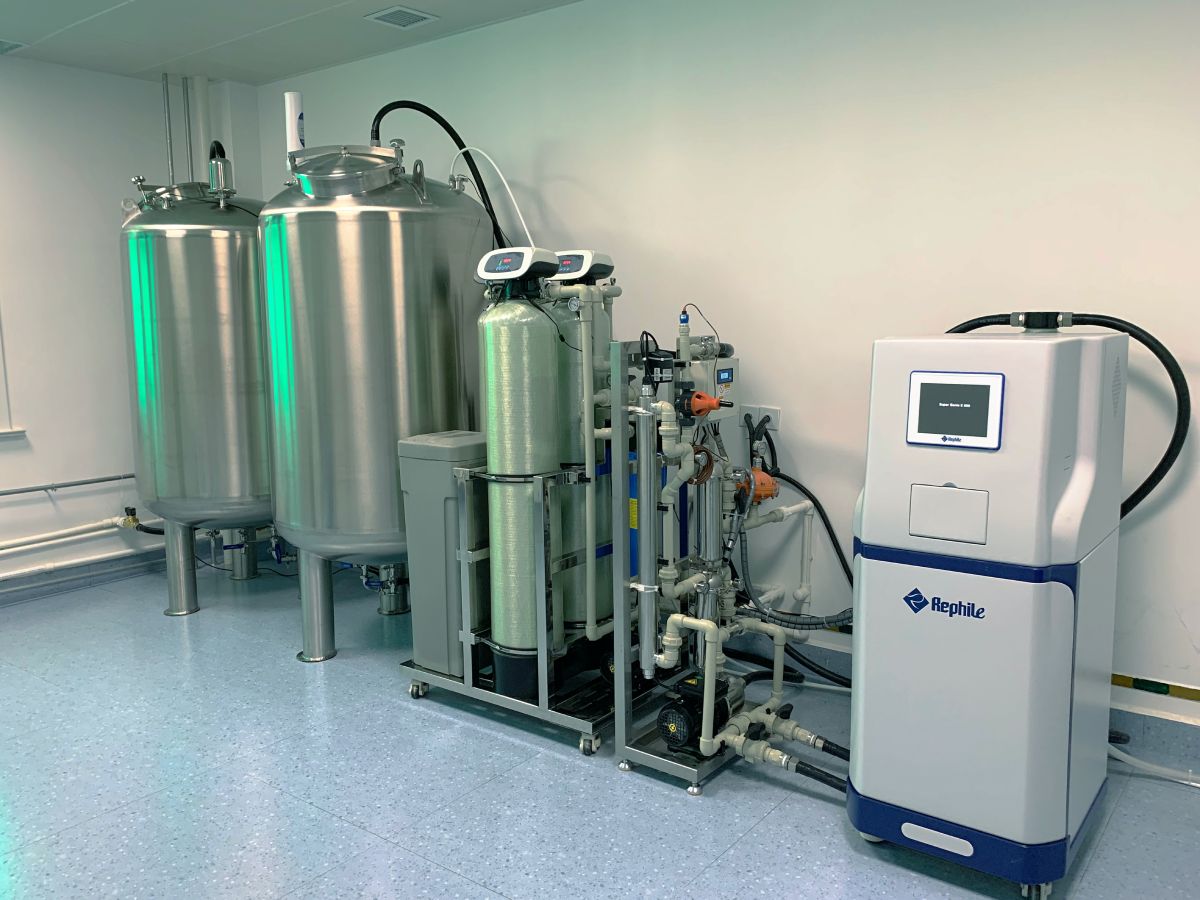
Technological Advancements in Water Filtration
The field of water filtration is seeing exciting technological advancements that prioritize both effectiveness and sustainability:
- Nanotechnology: This technology allows for the creation of ultra-efficient filters that can remove even the smallest impurities without needing high-energy inputs. Moreover, these nano-filters have a longer lifespan, reducing waste from frequent replacements.
- Biological Filtration: This is an emerging area where beneficial bacteria are used to break down contaminants. It’s a natural process requiring minimal energy and no harmful residues.
- Solar-powered Filters: Solar power is harnessed to run water filtration systems, reducing reliance on non-renewable energy sources.
Emerging Sustainable Filter Materials
There’s growing interest in discovering and utilizing more sustainable materials for water filters:
- Plant-based Materials: Nature offers many effective filtration materials, from coconut shells to certain seeds. These filters are biodegradable and can be grown sustainably.
- Reusable Materials: Filters made from materials like ceramic can be washed and reused over a long time, reducing waste.
- Recyclable Materials: As recycling technologies advance, there’s potential to create filters from recyclable materials that can be efficiently reprocessed after use.
Impact of Consumer Demand on Filter Innovation
Consumer demand is a powerful driver of innovation in sustainable water filters:
- Demand for Green Products: Companies are motivated to create more sustainable filters as consumers seek eco-friendly options.
- Consumer Education: The more consumers understand water issues and sustainability, the more they will likely demand responsible products.
- Market Competition: As sustainable filters become more popular, competition will drive companies to innovate and offer more efficient, cost-effective, and sustainable options.
The future of sustainable water filters looks bright, promising cleaner water with a lighter environmental footprint. In the next section, we will conclude by summarizing the main points and sharing some final thoughts on the topic.
Advocacy for Clean and Sustainable Water
While choosing sustainable water filters is a great step towards a greener planet, advocating for broader changes is also important. From raising awareness about water quality and conservation to supporting policies that improve clean water access, we all have a role in promoting sustainable water practices.
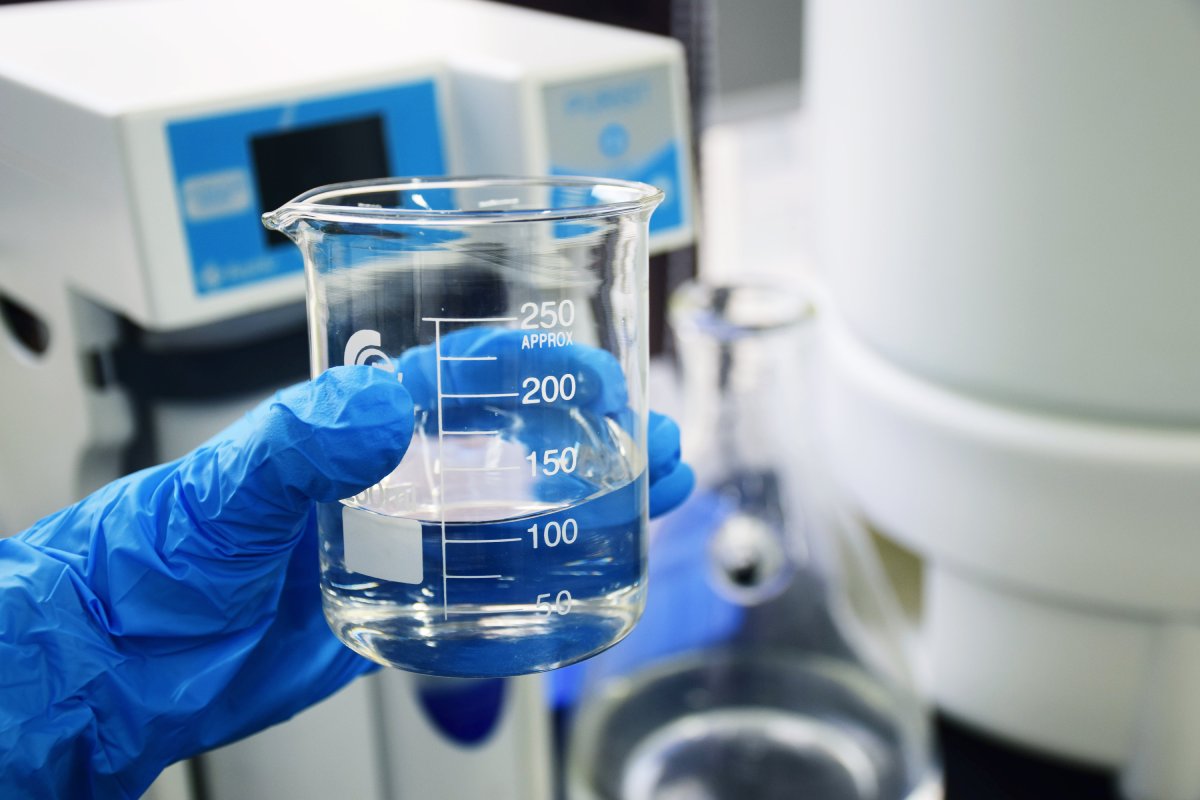
Raising Awareness about Water Quality and Conservation
Educating people about the importance of water quality and conservation can have a huge impact:
- Sharing Knowledge: Use social media, blogs, or community events to spread information about water-related issues. The more people understand, the more likely they are to take action.
- Educational Programs: Collaborate with schools or community groups to incorporate water education into their programs. Younger generations will be stewards of our planet in the future and must understand the importance of water conservation.
- Public Demonstrations: Participate in or organize public events or demonstrations to raise awareness about the importance of clean, sustainable water.
Supporting Policies for Clean Water Access
Political advocacy is also essential in securing clean water for all:
- Policy Advocacy: Support policies and legislators prioritizing clean water and environmental sustainability. This could involve writing to your representatives, signing petitions, or even running for office yourself.
- Community Engagement: Attend town hall meetings or other community events to voice your support for clean water initiatives.
- Volunteering: Many non-profit organizations are doing crucial work in promoting clean water policies. Offering your time or resources can help them make an even greater impact.
Promoting Sustainable Water Practices in Your Community
Finally, you can make a difference right in your community:
- Community Projects: Organize or participate in community projects aimed at water conservation. This could involve planting water-efficient gardens, cleaning local waterways, or installing community water filters.
- Sustainable Living Workshops: Host workshops to teach people in your community about sustainable living practices, such as how to use and maintain sustainable water filters.
- Local Businesses: Support local businesses that prioritize sustainability, and encourage other businesses to do the same. Consumer demand can drive significant change.
The fight for clean, sustainable water doesn’t end with choosing a green filter. Through education, policy advocacy, and community engagement, we can all contribute to a healthier planet with access to clean water for all. The next section will conclude this journey into sustainable water filters with a summary overview.
Conclusion
As we draw our discussion to a close, let’s reflect on the core concepts and takeaways surrounding sustainable water filters. The journey to cleaner drinking water and a healthier planet begins at home, and our choices about the products we use, including water filters, can make a significant difference.
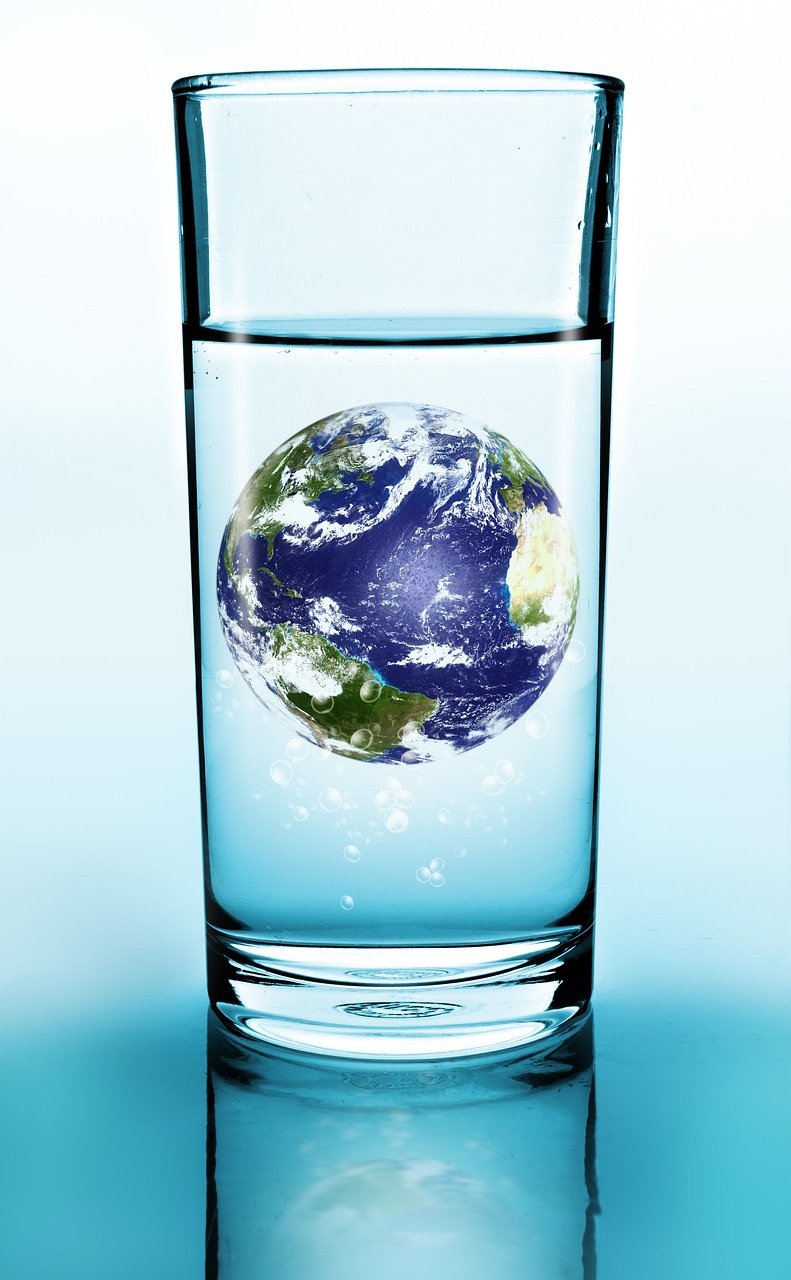
Recap of the Benefits of Sustainable Water Filters
We’ve delved deep into the world of sustainable water filters and their benefits:
- Environmentally Friendly: These filters minimize harmful environmental impacts by utilizing eco-friendly materials, promoting energy efficiency, and emphasizing waste reduction and recyclability.
- Health Benefits: Sustainable water filters provide access to clean, contaminant-free drinking water, offering numerous health benefits.
- Water Conservation: Such filters can help conserve water by reducing dependence on bottled water and minimizing water waste.
The Connection Between Clean Drinking Water and a Healthy Planet
Clean drinking water and a healthy planet are intrinsically linked. By choosing to invest in sustainable water filters, we contribute to the following:
- Better Health: Clean water means reduced risk of water-borne diseases and better overall health for individuals and communities.
- Water Conservation: Using a sustainable filter helps reduce the massive waste generated by plastic water bottles, and the efficient designs of these filters can also lead to less water waste.
- Environmental Protection: By choosing products made with eco-friendly materials and manufacturing processes, we support companies that prioritize the health of our planet.
Encouraging Readers to Consider Sustainable Water Filters
Sustainable water filters are more than just a smart choice for clean drinking water - they’re an investment in the health of our planet. By choosing sustainable options, you can:
- Make a Difference: Your choices as a consumer can drive change in the industry and contribute to a more sustainable future.
- Advocate for Change: Use your experience to educate others about the benefits of sustainable water filters, promoting wider awareness and adoption.
- Influence Policy: Supporting businesses prioritizing sustainable practices can push for more stringent regulations in the industry, leading to broader improvements in water quality and environmental sustainability.
In the face of global water quality issues, sustainable water filters present a practical solution that marries the need for clean drinking water with the urgency of environmental protection. They are a testament to the possibilities that emerge when we design with the health of our planet in mind. As we look to the future, sustainable water filters are a promising prospect in pursuing a healthier planet. Let’s choose to be part of this positive change today!

